Presidents as 'consoler in chief': How Trump measures up
"Trump shows outrage very well ... but he doesn't really show warmth."
— -- A week after the deadly school shooting in Florida, President Donald Trump has visited with victims and first responders, tweeted accusations of possible negligence, initiated a policy change, and is set to meet for a listening session with students and others impacted by gun violence.
But should Trump embrace the role of "consoler in chief"?
"I said after the election that what the country needed as much as a national president, was a national pastor. As much as a commander in chief, we needed a pastor in chief. President Trump has never viewed his role in this way, and he seems to be someone exceedingly uncomfortable in exuding empathy," according to ABC News political analyst Matthew Dowd.
"Long before what happened in Florida, or happened in Las Vegas, the country was in need of healing. And now more than ever the president’s needed role is 'comforter in chief,' but this seems like foreign territory for him," he said.
Elaine Kamarck, a senior fellow at the Brookings Institution, thinks Trump could take some tips from his predecessors.
"There's just some presidents that are better at showing warmth than others and Trump is not good at that. Trump shows outrage very well, anger very well, but he doesn't really show warmth," Kamarck said.
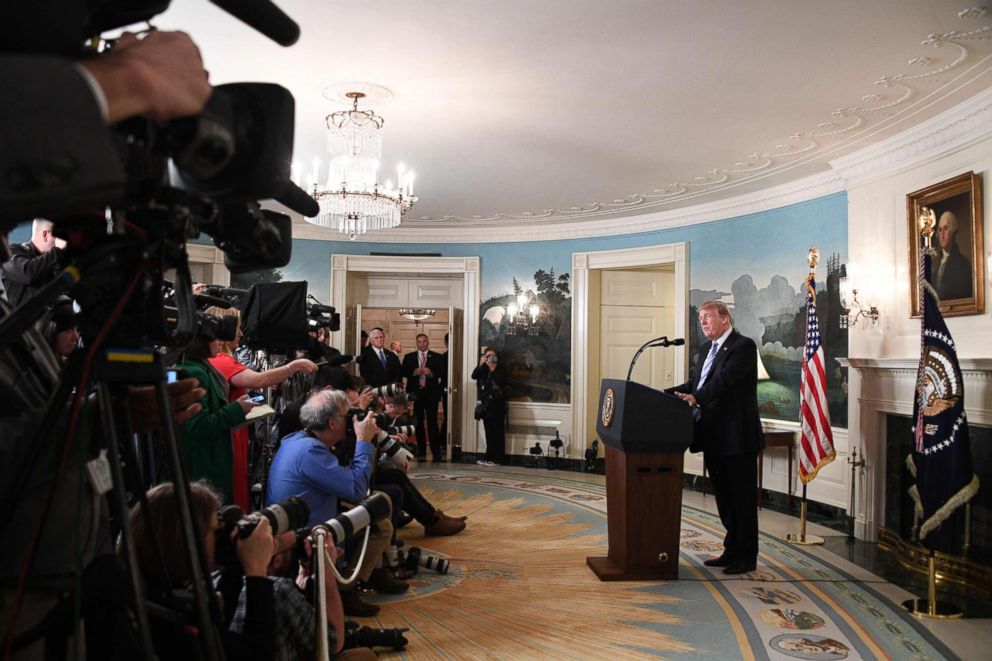
Among the best, in Kamarck's opinion, were President Bill Clinton, who "could feel people's pain," and President Ronald Reagan, who "was fantastic at it, maybe the best we've ever seen." She specifically cited his televised address after the space shuttle Challenger disaster in 1986.
As for Ken Khachigian, who served as the chief speechwriter for Reagan and was on the speechwriting staffs for Presidents Richard Nixon and Gerald Ford, Trump's remarks following several tragedies during his time in office have been "spot on, excellent."
"The words matter and I think to the extent that people did absorb them and listen to them, it probably had a healing effect for those who were looking for some consoling and some warmth," Khachigian told ABC News.
Khachigian did take issue with delivery of his words, however, saying the backdrop of where he delivered some of his remarks was not ideal. When Trump spoke after the congressional baseball practice shooting, the Las Vegas shooting, and now the Parkland school shooting, he did so while standing up and facing the cameras directly in the Diplomatic Room of the White House.
"People have come to understand Trump's style for what it is and I don't think he's going to change," he said.
Khachigian continued, "He's not Ronald Reagan. He's not an actor, he's not going to have that very smooth and warm approach to matters. That's not his type."
Trump is "more straightforward and businesslike [and] I'm glad, given [his] style, that he was still able to come forth and deliver a very warm speech with words that were very warm and appropriate," Khachigian added.
Trump's actions
In Trump's statements after mass shootings, he regularly cites or quotes scripture, pleads for unity and support for the victims, and, in some instances -- like the shooting in Las Vegas or Sutherland Springs -- calls it an act of evil.
He also praises the "heroic actions" or "courageous efforts" of responding officers, like he did after the congressional and Las Vegas shootings, respectively.
Trump has visited the sites of shootings in Las Vegas, Nevada and Broward County, Florida. The visits included meetings with law enforcement officials and first responders.
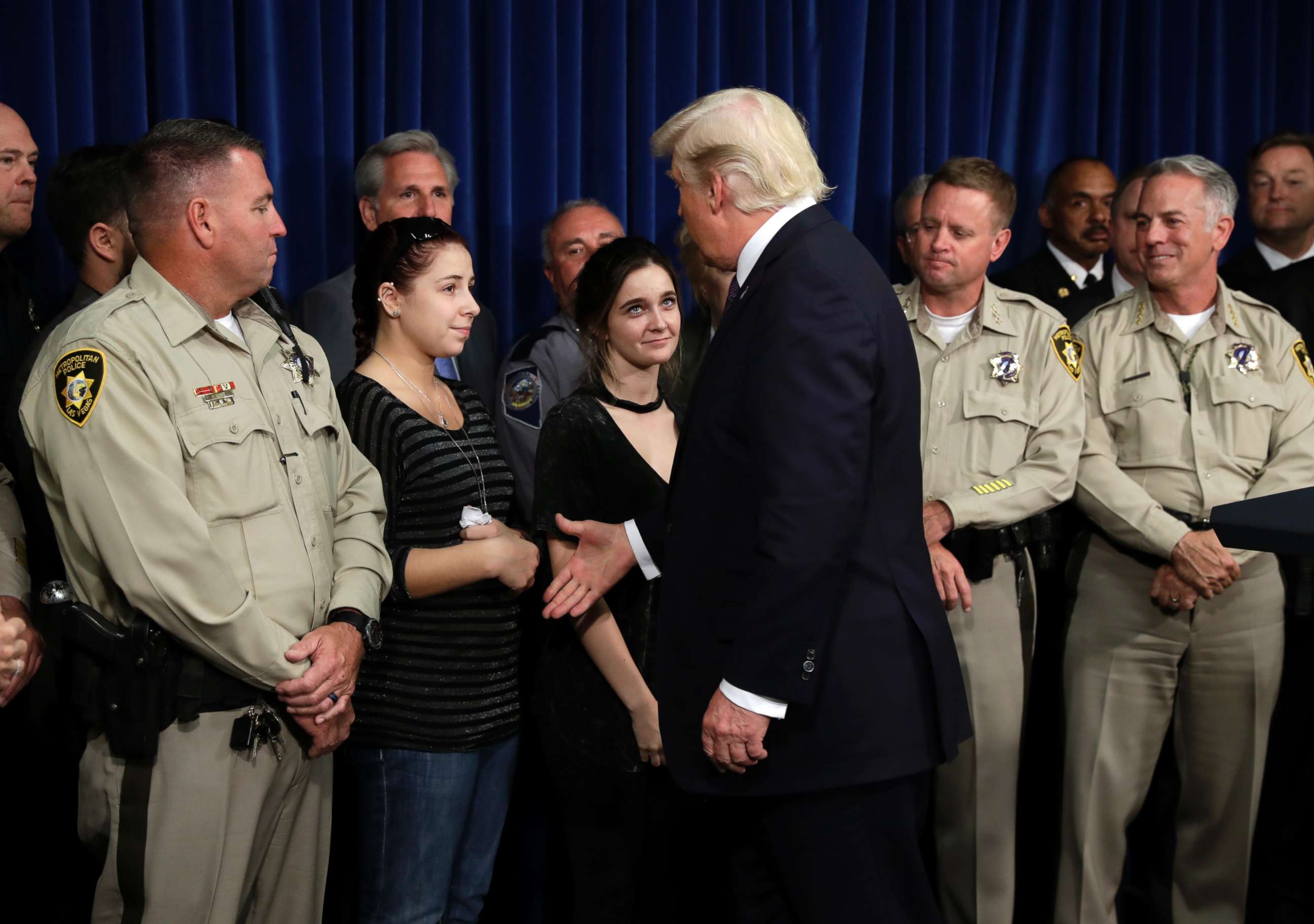
Det. Steve Grammas, who is the president of the Las Vegas Police Protective Association, was not there when Trump spoke to first responders following the shooting at the Route 91 Harvest Festival but he heard from them afterward.
"They found it really honorable of the president," Grammas told ABC News.
"Anytime we all do this job -- it's a thankless job -- and to see someone of President Trump's stature come down and personally meet the first responders face to face, they felt was very uplifting of the president," he said.
Trump similarly met with first responders in Louisiana and spent time at a mega-shelter being used to house displaced residents in Houston after Hurricane Harvey in September.
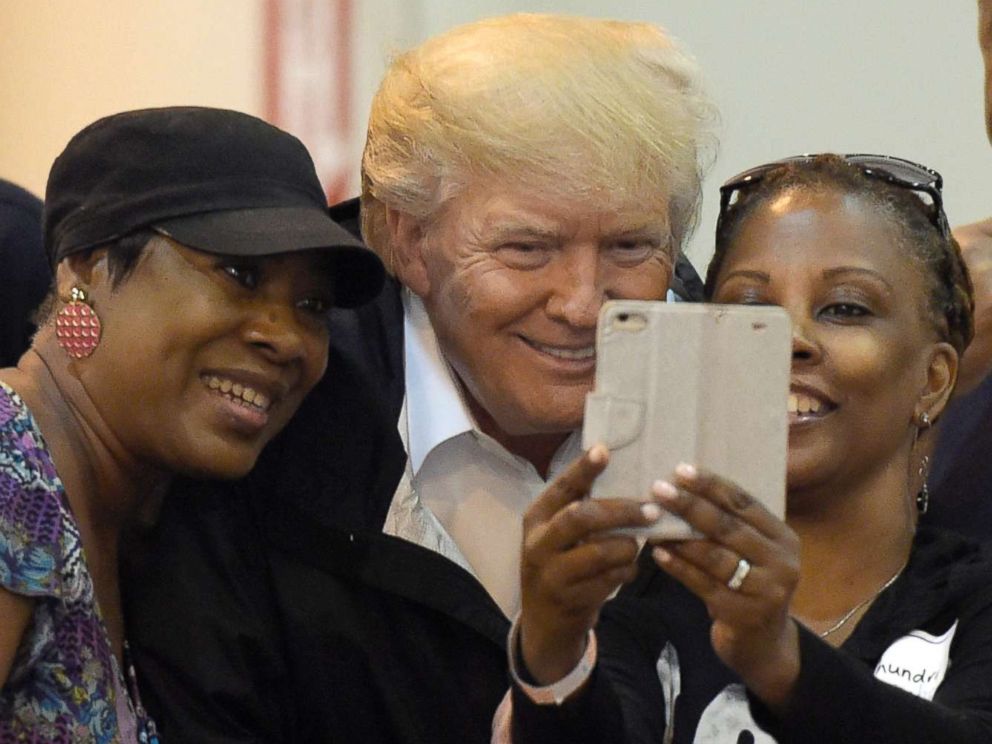
The repeated meetings with law enforcement officials are in keeping with his campaign promise to be the self-described law-and-order candidate.
"After talking to President Trump [people felt] that the law enforcement community was at the forefront of his thought process and his support of law enforcement was tremendous," Grammas said.
Trump also visited hospitals treating victims from the congressional baseball shooting, the Las Vegas shooting and the Parkland school shooting.
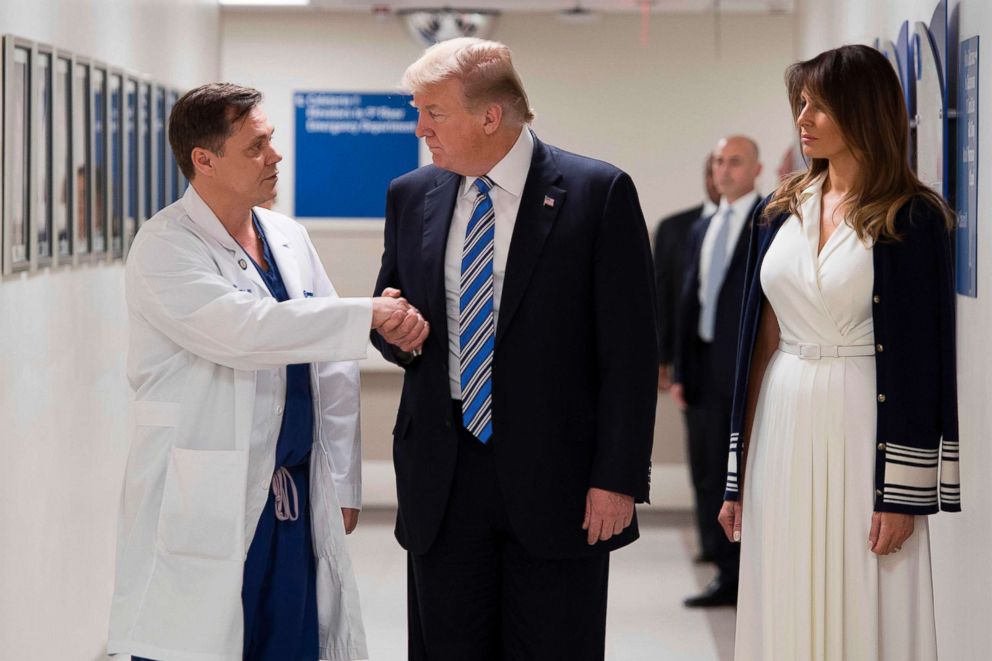
Trump, however, has not spoken at memorial services for shooting victims like his predecessors did. Clinton spoke at a memorial service for the victims of the Oklahoma City bombing in 1995 and President Barack Obama spoke at the interfaith vigil for the victims of the Sandy Hook Elementary School shooting in 2012.
Trump did appear supportive of Obama's speech, tweeting at the time that "President Obama spoke for me and every American in his remarks in #Newtown Connecticut."
Possible public missteps
One instance where Trump was publicly rebuked for his handling of a tragedy was after the death of U.S. Army Sgt. La David Johnson, who was killed in Niger last October.
Trump's call to the soldier's widow, Myeshia Johnson, prompted a political firestorm, and she spoke to ABC News about how upset she was by the call.
"It made me cry cause I was very angry at the tone of his voice and how he said he couldn’t remember my husband’s name," Myeshia Johnson said on "Good Morning America."
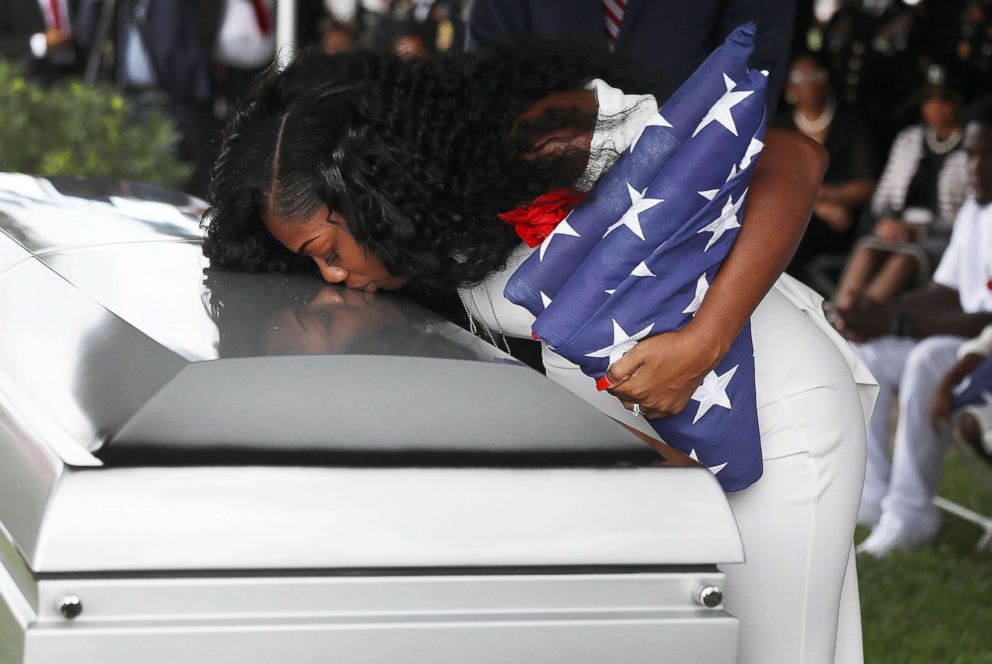
"The only way he remembered my husband's name is because he told me he had my husband’s report in front of him and that’s when he actually said La David. I heard him stumblin' on trying to remember my husband’s name and that’s what hurt me the most, because if my husband is out here fighting for our country and he risked his life for our country why can’t you remember his name," she said.
At the time, Trump called her description a "total fabrication."
Kamarck, the Brookings Institution fellow, pointed to a recent tweet as another example of when Trump stumbled while practicing the "consoler-in-chief" role.
His decision to accuse the FBI of missing signs about the Parkland, Florida, shooter because of its involvement in the Russian election interference investigation was particularly "tone deaf," Kamarck said.
"To conflate the tragedy at Parkland with the FBI investigation into Russian hacking was completely insensitive," Kamarck noted.
She said Trump handles national tragedies "in the same way he handles everything else, which is that his own ego gets in the way of his performance."
That said, Khachigian thinks the public may be raising the bar too high in terms of the expectations for the president in times of crisis.
"I think sometimes we tend to overstate the importance and role of the president of the United States and in responding to each and every national crisis. I think we've just come to expect that, I suppose, but a lot of times maybe our expectations are too high," he said.




